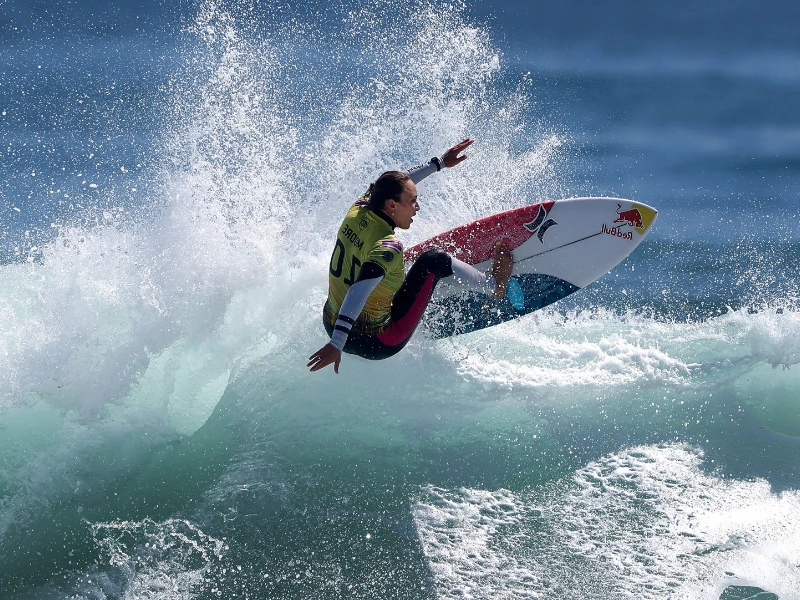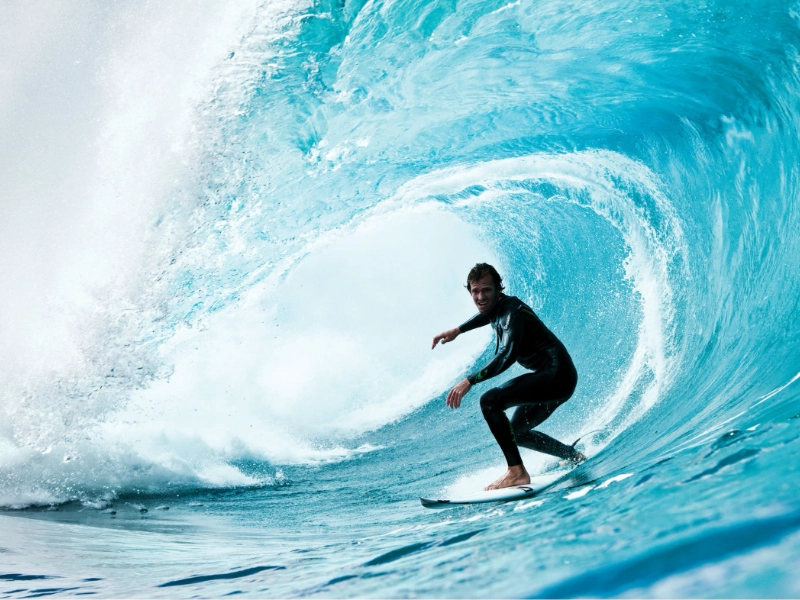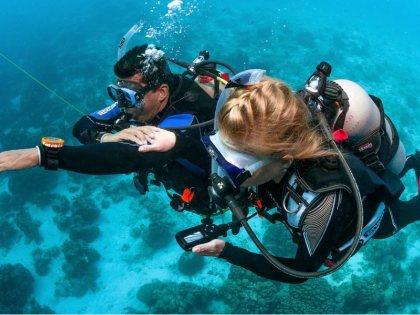Overcoming Surf Wipeouts: Mental And Physical Recovery
Because of the likelihood of a wipe-out, injury, or drowning, many people dread surfing. Still, these worries can be conquered with enough advance and a strong attitude. Getting acquainted with the break you are surfing may help you to lessen your anxiety of wipe-outs. Spend some time watching the wave, tracking the tide, and noting where all the rocks, reefs, and other surfers are found.
Mental Recovery

Physical Recovery
 Surf therapy enables individuals to re-connect with the great therapeutic power of the ocean in a controlled atmosphere. It also offers a chance to build resilience and learn by experience.
A physically demanding sport, surfing can cause depletion. After your workout, take some time to replenish with protein and carbohydrates.
Among the most often occurring physical injuries include a "pearl," sometimes known as a "spin," which results from a surfer losing control and falling off their board. These wounds call for medical treatment and can be rather agonising.
A traumatic wipeout might affect some surfers' mental health for some years. They might be afraid, cautious, or perhaps have post-traumatic stress disorder. Still, this can be addressed with different kinds of treatments like medicine and psychotherapy. Trauma and addiction can affect the brain's hippocampal, prefrontal cortex, and amygdala equilibrium that these therapies assist in rebalancing. Furthermore encouraging emotional control and a good self-esteem are these therapies.
Surf therapy enables individuals to re-connect with the great therapeutic power of the ocean in a controlled atmosphere. It also offers a chance to build resilience and learn by experience.
A physically demanding sport, surfing can cause depletion. After your workout, take some time to replenish with protein and carbohydrates.
Among the most often occurring physical injuries include a "pearl," sometimes known as a "spin," which results from a surfer losing control and falling off their board. These wounds call for medical treatment and can be rather agonising.
A traumatic wipeout might affect some surfers' mental health for some years. They might be afraid, cautious, or perhaps have post-traumatic stress disorder. Still, this can be addressed with different kinds of treatments like medicine and psychotherapy. Trauma and addiction can affect the brain's hippocampal, prefrontal cortex, and amygdala equilibrium that these therapies assist in rebalancing. Furthermore encouraging emotional control and a good self-esteem are these therapies.
Recovery from Trauma
 A wipeout can help you heal from trauma just as it can teach you how to get better at surfing. For those suffering with depression, PTSD, or burn-out, surfing—especially learning to conquer fear of the ocean—is a great treatment.
Common minor wounds are lacerations and surfer's ear (exostoses). Small cuts should be cleaned with fresh water and covered with a sterile gauze pad. Rest and ICE—applying cold compresses and elevating the afflicted area—can help heal these wounds.
See a doctor for more major injuries. Training and physical fitness help to lower the risk of surfing-related injuries by increasing strength, endurance, and flexibility. Studies of surf therapy have found that it greatly enhances mental wellness. Young adults with melancholy and anxiety who engaged in surf therapy, for instance, showed notable relief in their symptoms according to a research by the British Surf Therapy organisation.
A wipeout can help you heal from trauma just as it can teach you how to get better at surfing. For those suffering with depression, PTSD, or burn-out, surfing—especially learning to conquer fear of the ocean—is a great treatment.
Common minor wounds are lacerations and surfer's ear (exostoses). Small cuts should be cleaned with fresh water and covered with a sterile gauze pad. Rest and ICE—applying cold compresses and elevating the afflicted area—can help heal these wounds.
See a doctor for more major injuries. Training and physical fitness help to lower the risk of surfing-related injuries by increasing strength, endurance, and flexibility. Studies of surf therapy have found that it greatly enhances mental wellness. Young adults with melancholy and anxiety who engaged in surf therapy, for instance, showed notable relief in their symptoms according to a research by the British Surf Therapy organisation.
Recovery from Addiction
 Recovering is a trip of healing and metamorphosis. Supported, friendships and hope abound in this person-driven process of self-improvement and wellness. Recovering from mental health problems and addiction is something people do with peers' and mentor support. They pick up good coping mechanisms, early warning indicators of relapse, and the ability to control impulses.
Surfing helps us to learn the need of paying attention to our body. We have to be able to grasp how our emotional and physical condition affects our board performance as well as how to react to the shifting oceanic conditions. Maintaining sobriety in recovery depends critically on this awareness of the body since it enables us to control urges and keep a balanced lifestyle.
Surfing helps us to release ghosts from the past and our inhibitions. In rehabilitation too, we have to let go of our bad habits and embrace a new optimistic identity.
Recovering is a trip of healing and metamorphosis. Supported, friendships and hope abound in this person-driven process of self-improvement and wellness. Recovering from mental health problems and addiction is something people do with peers' and mentor support. They pick up good coping mechanisms, early warning indicators of relapse, and the ability to control impulses.
Surfing helps us to learn the need of paying attention to our body. We have to be able to grasp how our emotional and physical condition affects our board performance as well as how to react to the shifting oceanic conditions. Maintaining sobriety in recovery depends critically on this awareness of the body since it enables us to control urges and keep a balanced lifestyle.
Surfing helps us to release ghosts from the past and our inhibitions. In rehabilitation too, we have to let go of our bad habits and embrace a new optimistic identity.








